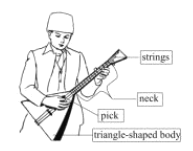题目内容
— I'll drive to the supermarket. Would you like me to get something for you?
— Oh, ______. I want some bananas, but my hands are full now.
A.it's up to you B.you'd better not C.that couldn't be better D.it's too bad
练习册系列答案
 阅读快车系列答案
阅读快车系列答案
相关题目


